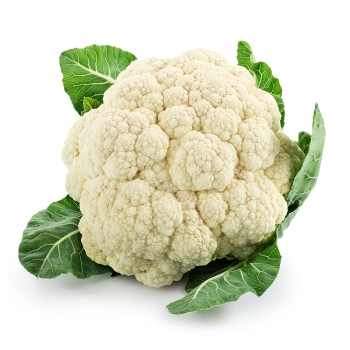INTRODUCTION

- Cauliflower is a common vegetable of the Cruciferous family.
- It is a cancer-fighting agent.
- It helps to keep your heart healthy by lowering your cholesterol levels.
- Bihar, Uttar Pradesh, Orissa, West Bengal, Assam, Haryana, and Maharashtra are the most important cauliflower-producing states.
- It has good protein content and is unique in terms of vitamin C stability after cooking.
- Potassium, sodium, iron, phosphorus, calcium, magnesium, and other minerals abound.
REQUIREMENTS
- Soil- It can grow well in a wide range of soil from sandy loam to clay
- Temperature- 12-30°C
- pH- 6 to 7
- Rainfall- 120-125mm
- Climate- It requires a cool moist climate
IRRIGATION
- Irrigate the plants right after they've been transplanted.
- Apply irrigation every 7-8 days in the summer and every 10-15 days in the winter, depending on soil and climatic conditions.
- During the months of January and February, irrigation is done once a week.
- Irrigation takes place once a week.
CULTIVATION
- The seeds should be placed in rows with an 8-10 cm gap between rows and 1.5-2 cm between seeds at a 1.5-2 cm depth.
- Seeds should be sown at a spacing of 8 to 10 centimeters between seedlings and 1.5-2 centimeters between rows.
- Nurseries should be built under a polyhouse or polytunnel during the monsoon season.
- Weeding and cross-cultural operations should be done on a regular basis. Irrigation of nursery beds should be done as needed.
NUTRIENT DEFICIENCY
DISEASES

